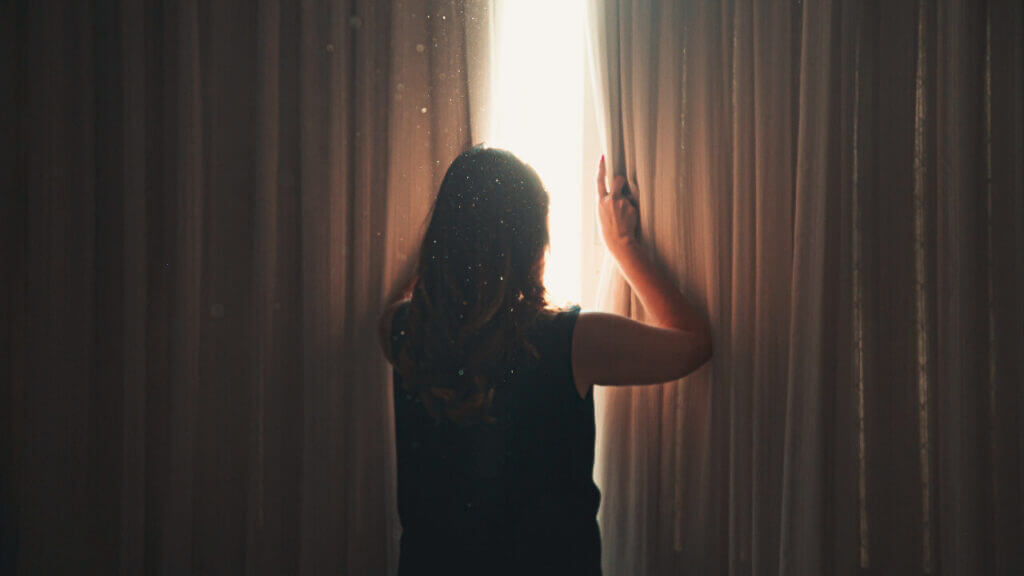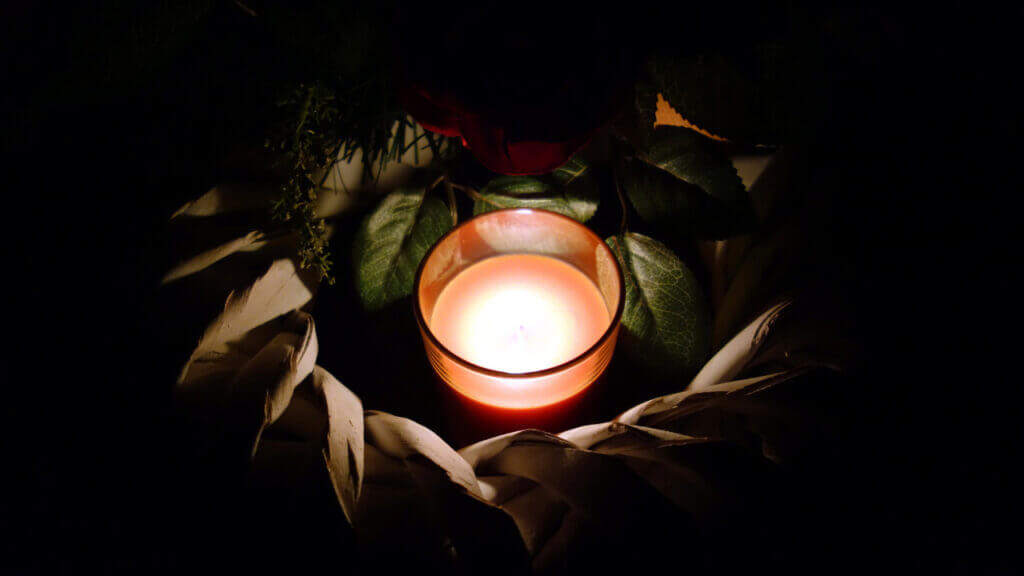
Human experience is fraught with a multitude of problems, most of which stem from doubt. Our lives begin without much complication until we start to worry if everything is really going to be okay. Are we doomed to live in anxious doubt for the rest of our lives? No! Here’s how Catholic Mindfulness can help.
(Contains excerpts from The Mindful Catholic.)
Our difficulties begin the moment we learn to doubt
Think about it. The Garden of Eden was paradise until the slimy serpent planted seeds of doubt in Adam’s and Eve’s minds.
Since then, the human experience has been fraught with a multitude of problems that stem from doubt. Our own lives begin without much complication until the moment we start to worry if everything is really going to be OK.
For instance, have you ever had a restless night of really bad sleep where your mind would not stop racing? Thoughts come as if from nowhere as you lay awake in the dark and despite your best efforts, you can’t make them go away.
You might try turning over, getting up to use the bathroom, putting on a noise machine, or taking some cocktail of herbs and supplements. Yet there they are as soon as you settle down again – ready to force your attention to keep them company through the midnight hours.
Our minds do this because we are trying to get ahead of the fact that things are not always OK; at the most primal level, this is because we doubt.
Christianity, however, offers the solution: Jesus is our hope, and to believe in Him is to believe that all will be well.
God provides assurance that we don’t need to doubt. Trusting Him is the antidote to doubt, and trust is the foundation of our faith. When we trust God and His promises, we enter into a relationship with the Father that is destined for eternal union.
Along the way, this relationship means growing every day in peace, letting go of doubt, and accepting all aspects of life as manifestations of God’s will.
However, there are daily temptations to fall back away from this reality of God’s love and be pulled once again into the frantic race of life.
Unless you are a monk spending many hours in recollection each day (and monks face the same struggle), the obligations of life can tear you away from a sense of inner peace.
(Add to that the physiological reality of hormonal activity and fluctuating moods, and you end up with a very colorful array of human experience.)
How can we stop the anxious ruminations that pull us away from resting in the reality that God is in control and that all will be well?

For this we have to discover more about how our minds work.
Scientific research, especially aided by brain-imaging technology, has made significant discoveries regarding our patterns of thinking, their effect on the brain, and the brain’s effect on behavior and lived experience.
The first principle that research has taught us is that it is not negative emotion itself that leads the brain toward damaging patterns but the way we respond to the emotion.
Second, when we try to think our way out of those negative patterns – by either “figuring them out” or trying to force them out of our minds – we typically make the negative effect worse.
For many people (especially those without the guidance of a trained professional) trying to think their way out of a problem in their mind is like trying to swim their way out of quicksand: the more they move, the deeper they sink.
The more they think, the worse it gets.
These scientific discoveries shine a bright light on just why it is that we end up in such frantic cycles and patterns of thinking. When we are in a bad mood, unhappy, irritable, or anxious, we usually try to figure out what the problem is.
However, research has shown that it’s precisely in judging that there is a problem that’s one of the biggest problems!
The more we try to figure things out, the more our tendencies of thinking sink our mood.
This is where Catholic mindfulness can help.
Based on four decades of scientific research integrated with thousands of years of Catholic spirituality, Catholic mindfulness teaches you how to become aware of the workings of your mind in a new way.
Through it, you learn to see just how easily our minds are distracted from the present moment, and how much your avoidance of discomfort actually hurts you. Essentially, it is a practical way of trusting in God.
What is Catholic Mindfulness though?

A definition of mindfulness that we can work with is “paying attention to the present moment without judgment or criticism.”
It is a way to be aware with acceptance. It can also be understood as coming to our senses, or very simply, waking up.
If mindfulness is awareness of the present moment, God is the present moment – the infinite epitome of mindfulness. He defined himself as “I Am Who Am.”
God sees all as a present moment, and it is our goal to see as He sees. We will never see all as He does, but we can see what we see with the light of the present moment.
The practice of mindfulness then, integrated with a trust in God, will help you let the moments be moments, and not turn them into more than they need to be.
This is Catholic mindfulness: learning it will help you begin to understand that those moments do not have to be avoided: that there really is nothing to fear.
Catholic mindfulness is all about bringing together the psychological realities of what’s happening in the brain (understanding the anxiety response and why we start ruminating) together with what we know through our faith in order to change our brains so as to increase our felt peace and trust in God.
This is exactly why I wrote the book The Mindful Catholic! It’s not enough to tell yourself to “just trust more.”
The Mindful Catholic outlines the eight week protocol that will help you actually change your brain in a way that allows you to experience peace from moment to moment!
Being present to the present moment will give you a greater sense of freedom, joy, and peace, allow you to learn from your missteps, accept others in theirs, and grow into the man or woman God created you to be.
When we trust God, we know that all will be well.
We see with His kind of eyes, which means that even if we don’t know what is about to happen or why, we know that all will be well, and it is this security that allows us to fully live in each moment.

Related Resources:
– You’re No Angel, But Neither Am I
– Who Are We, And What Heals Us?
– Healing Through Catholic Mindfulness (Part One of a Two-Part Blog Post)

